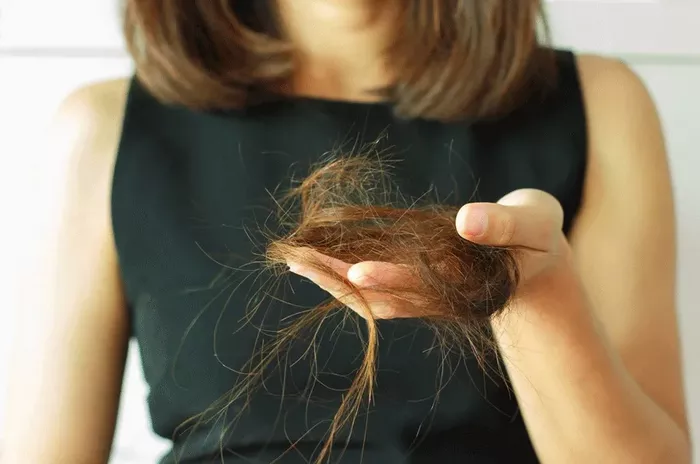Weight loss can be a transformative journey, leading to improved health, better fitness, and a boost in self-esteem. However, it can sometimes come with unintended side effects, including hair loss. This guide will help you understand why hair loss can occur during weight loss and provide you with strategies to prevent it, ensuring you achieve your weight loss goals without compromising your hair health.
Understanding Hair Loss During Weight Loss
Hair loss during weight loss is typically linked to nutritional deficiencies, rapid weight loss, hormonal changes, and stress. When the body undergoes significant changes, it can sometimes prioritize essential functions over others, such as hair growth. Understanding the root causes can help in preventing hair loss effectively.
Nutritional Deficiencies
One of the primary causes of hair loss during weight loss is nutritional deficiency. Hair follicles require a variety of nutrients to grow and stay healthy, including proteins, vitamins, and minerals. Diets that are too restrictive or unbalanced can lead to deficiencies, particularly in:
Protein: Hair is primarily made of a protein called keratin. Insufficient protein intake can weaken hair and slow down growth.
Iron: Iron deficiency can lead to anemia, reducing the oxygen supply to hair follicles and causing hair to thin.
Zinc: Zinc is crucial for tissue growth and repair, including hair tissue.
Vitamins: Vitamins A, C, D, and E, as well as B-vitamins like biotin, are essential for healthy hair.
Rapid Weight Loss
Losing weight too quickly can shock the body, leading to a condition known as telogen effluvium. This condition causes hair to enter the resting phase prematurely, leading to increased shedding and noticeable hair thinning.
Hormonal Changes
Weight loss can cause fluctuations in hormone levels, particularly if the weight loss is rapid or involves extreme dieting. Hormonal imbalances can affect the hair growth cycle, leading to hair loss.
Stress
The process of losing weight can be stressful, especially when combined with the physical stress of exercising and dietary changes. High stress levels can trigger hair loss through telogen effluvium or exacerbate existing hair loss conditions.
Strategies to Prevent Hair Loss During Weight Loss
To prevent hair loss while losing weight, it’s crucial to adopt a balanced approach that includes proper nutrition, gradual weight loss, stress management, and suitable hair care practices.
1. Maintain a Balanced Diet
A well-rounded diet is essential to ensure your body receives all the necessary nutrients for hair growth and overall health.
Protein-Rich Foods
Incorporate high-quality protein sources into your diet, such as lean meats, fish, eggs, beans, and legumes. Protein is vital for the production of keratin, the primary component of hair.
Iron-Rich Foods
Include iron-rich foods like spinach, lentils, red meat, and fortified cereals. Pairing these with vitamin C-rich foods can enhance iron absorption.
See Also: How to Reduce Hair Fall in Front Head: A Comprehensive Guide
Essential Vitamins and Minerals
- Vitamin A: Found in carrots, sweet potatoes, and leafy greens.
- Vitamin C: Citrus fruits, strawberries, and bell peppers are excellent sources.
- Vitamin D: Obtain from sunlight exposure and foods like fatty fish and fortified dairy products.
- Vitamin E: Nuts, seeds, and spinach are rich in vitamin E.
- Biotin: Eggs, nuts, and whole grains are good sources.
- Zinc: Meat, shellfish, and dairy products are rich in zinc.
2. Avoid Extreme Dieting
Extreme or crash diets can lead to rapid weight loss, increasing the risk of hair loss. Aim for a gradual weight loss of 1-2 pounds per week, which is more sustainable and less likely to cause nutritional deficiencies or hormonal imbalances.
3. Supplement Wisely
If you suspect you’re not getting enough nutrients from your diet, consider taking supplements. Consult a healthcare professional before starting any supplements to ensure they’re appropriate for your needs.
4. Stay Hydrated
Proper hydration is essential for overall health, including hair health. Drink plenty of water throughout the day to keep your body and hair hydrated.
5. Manage Stress
Stress management is crucial to prevent hair loss during weight loss. Incorporate stress-relieving practices such as:
- Exercise: Regular physical activity can help reduce stress.
- Meditation and Yoga: These practices can calm the mind and reduce stress levels.
- Adequate Sleep: Ensure you’re getting enough restful sleep each night.
6. Gentle Hair Care Practices
Adopt hair care practices that minimize damage and promote hair health:
- Avoid Heat Styling: Limit the use of heat styling tools like blow dryers, straighteners, and curling irons.
- Use Gentle Hair Products: Choose shampoos and conditioners that are free from harsh chemicals and sulfates.
- Avoid Tight Hairstyles: Styles that pull on the hair can cause breakage and hair loss.
- Regular Trims: Regular trims can help prevent split ends and keep hair looking healthy.
7. Monitor Your Progress
Keep track of your hair health as you progress on your weight loss journey. If you notice significant hair loss, consult with a healthcare professional or a dermatologist. They can help identify underlying causes and recommend appropriate treatments or adjustments to your diet and lifestyle.
Conclusion
Preventing hair loss during weight loss requires a balanced approach that includes proper nutrition, gradual weight loss, stress management, and gentle hair care practices. By taking these steps, you can achieve your weight loss goals while maintaining healthy, vibrant hair. Remember, a healthy body supports healthy hair, so prioritize overall wellness on your journey.


